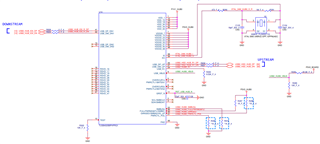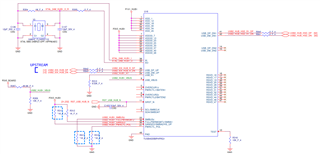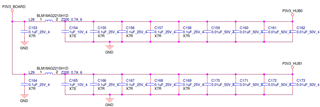Other Parts Discussed in Thread: UCD90320
Hi
We observe that P1V1 has leakage.
We already did the test that disconnector(below schematic L26, L27) the P1V1 power source to see P1V1 whether have glitch of voltage on the TUSB4020, It still show up.
Is it possible for the sequence that P3V3 power up faster than P1V1 power cause the leakage?

Schematic:





